Displaying 281-290 of 893 results
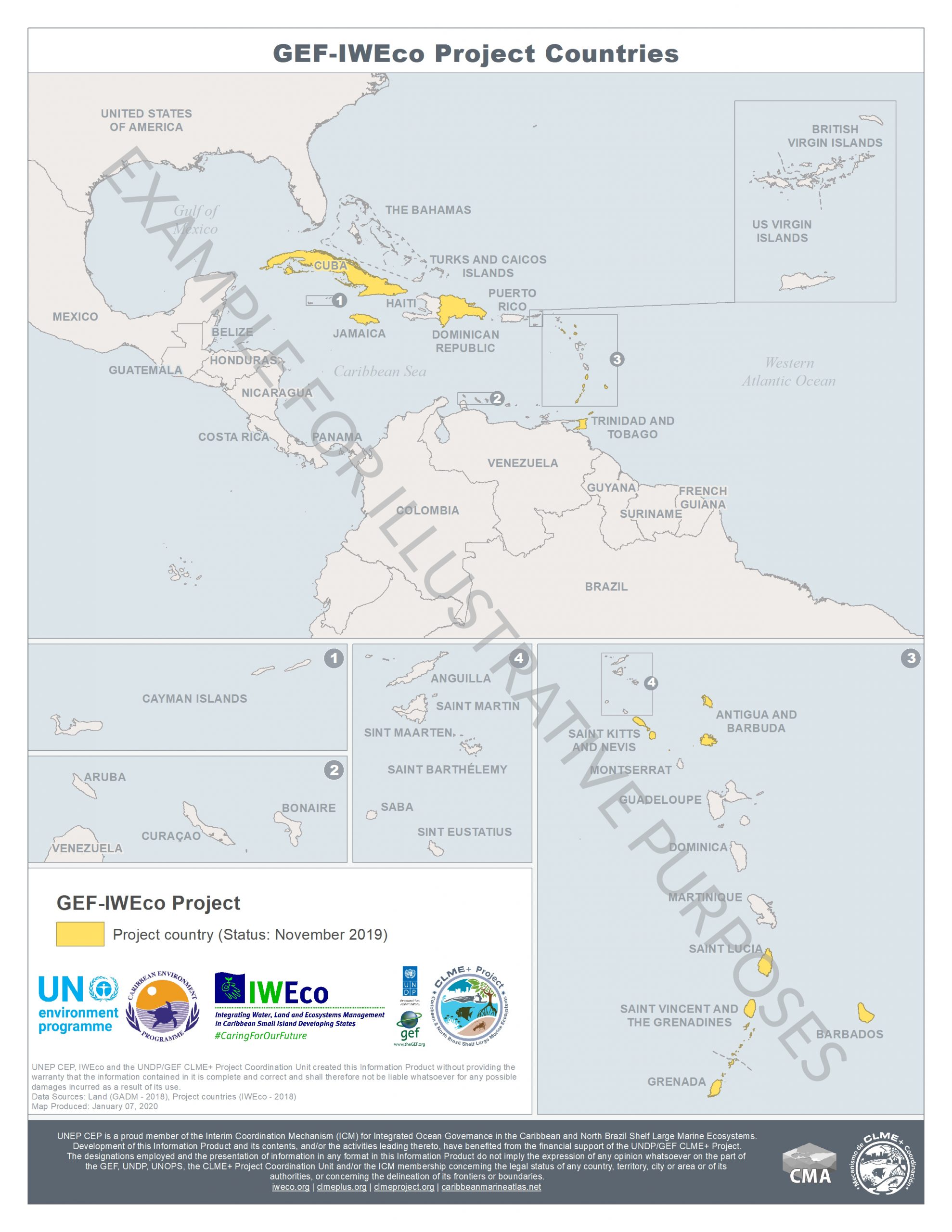
GEF-IWEco Project Countries
To date no abstract has been uploaded for this document
 5
5


 Report issue
Report issue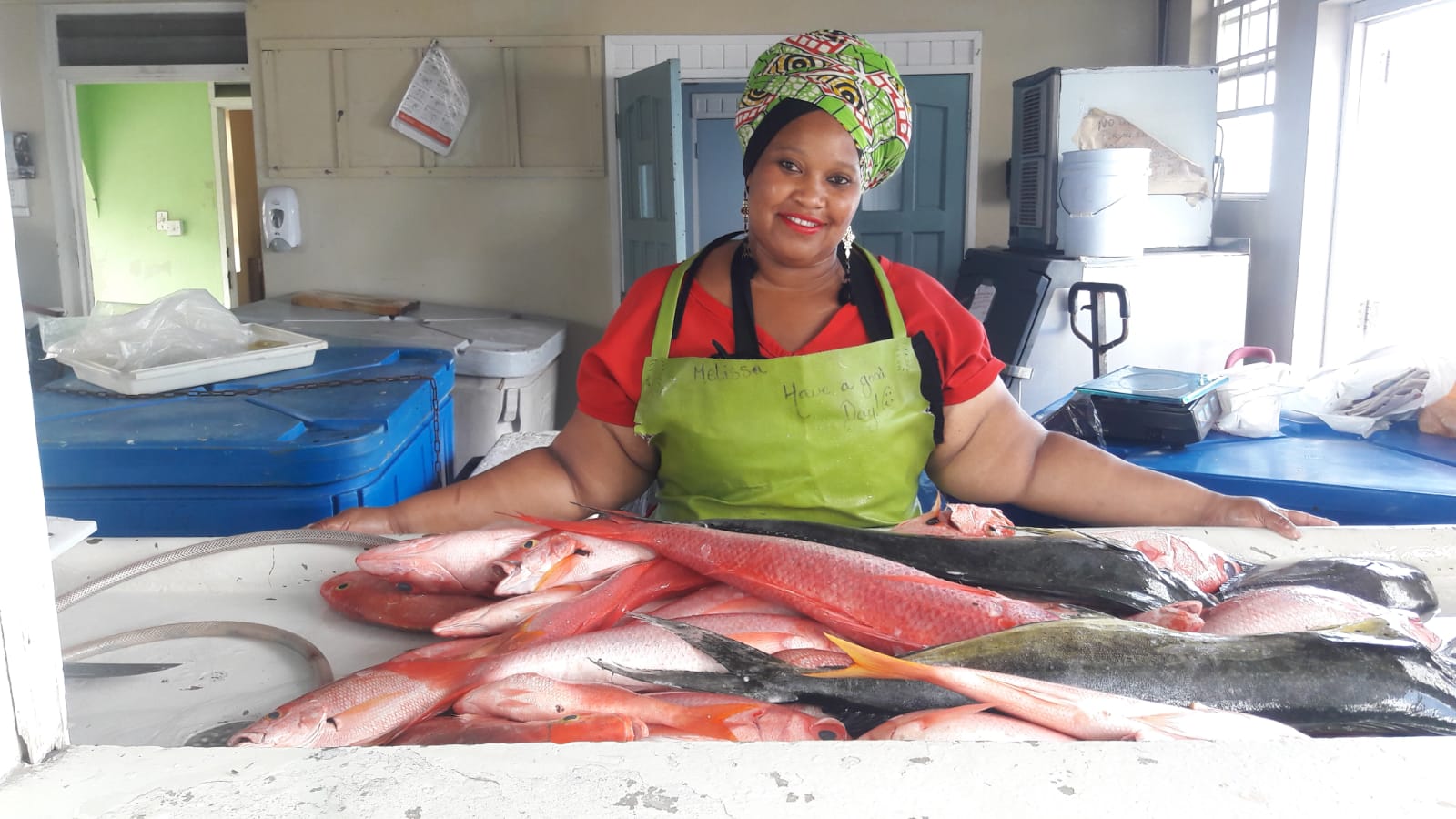
Gender analysis approach to identify the capacity gaps of men and women, especially youth, in relation to fisherfolk leadership
Organizational leadership is one of the most important roles of both women and men in the fishing industry. Empowerment of fisherfolk organization and strengthening or development of their capacity, especially in relation to leadership, is important to the successful implementation of the 2014 Voluntary Guidelines for Securing Sustainable Small-Scale Fisheries in the Context of Food Security and Poverty Eradication (SSF Guidelines) and the realization of sustainable fisheries. UWI-CERMES will conduct gender analyses within the fishing industries of four StewardFish project countries - Jamaica, Barbados, St. Vincent and the Grenadines, and Guyana - for identifying gaps in capacity of women, men and youth with regards to fisherfolk leadership. The findings of the analyses will be used to inform the development, update and/or adaptation of leadership training specifically for women and youth (both male and female). This report provides an outline of the proposed gender analysis methodology for the target project countries.
 10
10


 Report issue
Report issue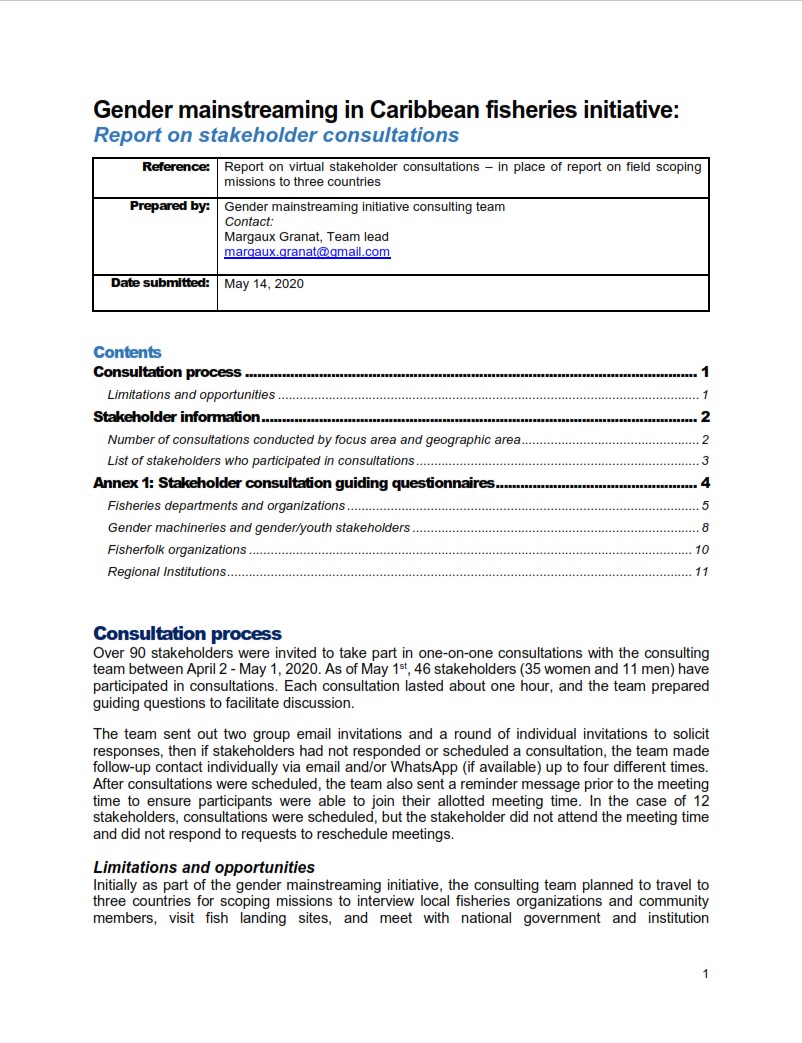
Gender mainstreaming in Caribbean Fisheries Initiative: Report on stakeholder consultations
This document presents the findings and conclusion from the virtual stakeholder consultation for the Gender Mainstreaming in Caribbean Fisheries Initiative.
 5
5


 Report issue
Report issue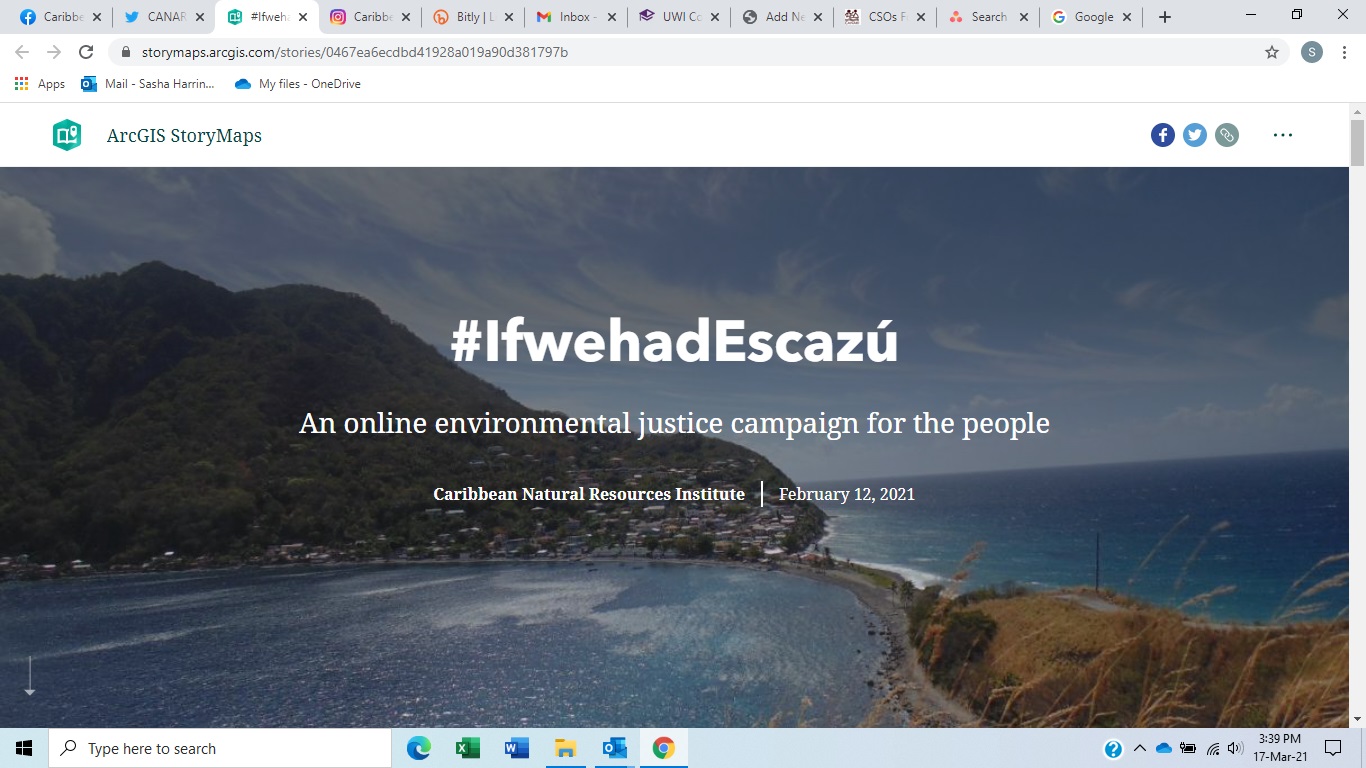
GIS Storymap, #IfWehadEscazú, launched by CANARI under PISCES project
On March 12, 2021, CANARI launched the #IfWehadEscazú Storymap as a platform to receive, collate and showcase Caribbean citizens’ stories about why the Escazú Agreement is important and how public access to timely information about issues affecting the environment, public participation in environmental decision-making, guaranteed protections for environmental defenders, and access to justice in environmental matters will make a difference in their lives. The Storymap, published under the PISCES project, is part of the #IfwehadEscazú campaign developed and being spearheaded by the Caribbean Natural Resources Institute (CANARI) in collaboration with other environmental civil society organisations (CSOs) based in countries across the Caribbean. The campaign aims to leverage the stories of Caribbean citizens to bring awareness to the benefits of Caribbean governments ratifying / acceding to the Regional Agreement on Access to Information, Public Participation and Justice in Environmental Matters in Latin America and the Caribbean - widely known as the Escazú Agreement. This work is supported by the regional PISCES project funded by the European Union (ENV/2016/380-530).



 Report issue
Report issue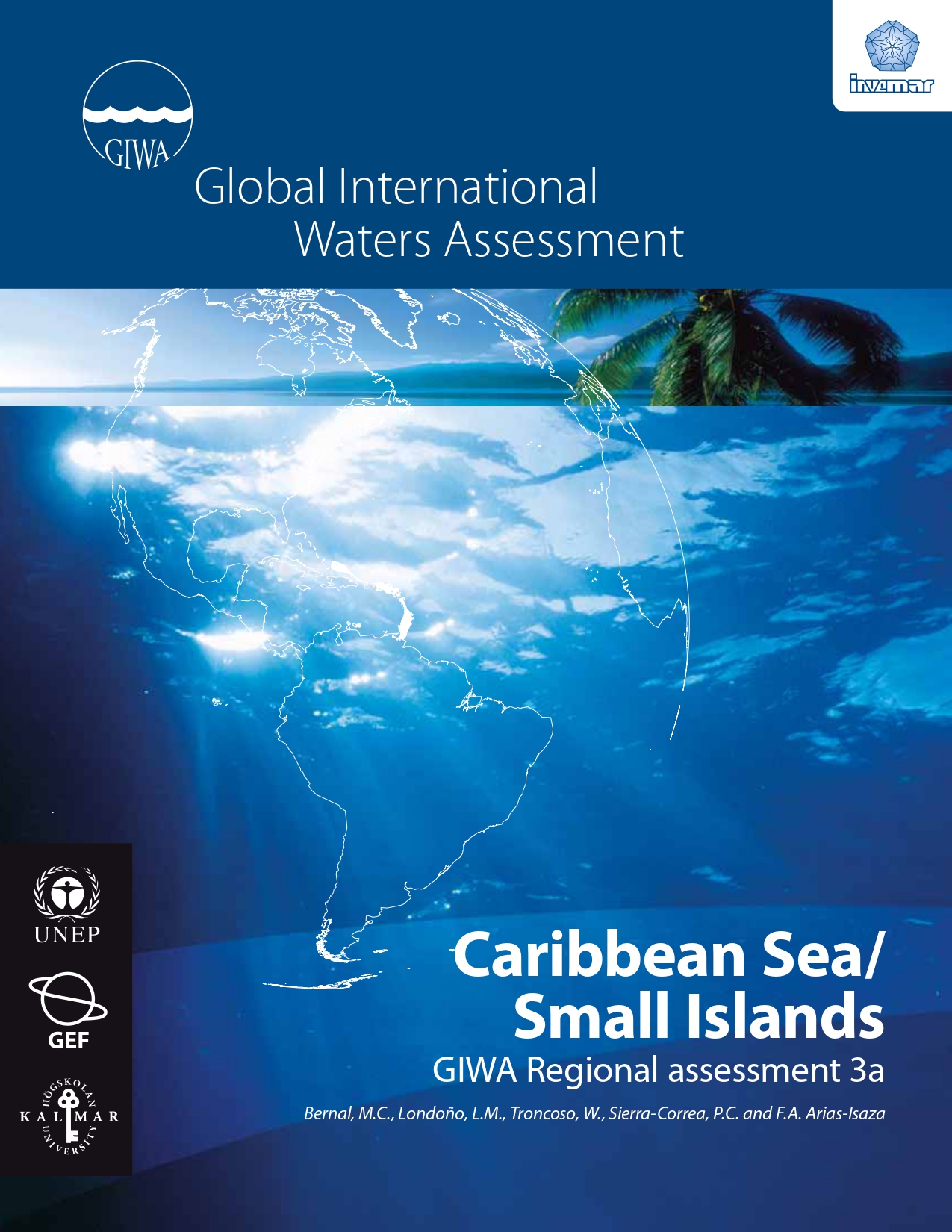
Global International Waters Assessment – Regional assessment 3a Caribbean Sea/Small Islands
The GIWA assessment evaluated the relative importance of different impacts on the international aquatic system of the Small Islands subsystem. The environmental and socio-economic impacts were assessed for present and future conditions, and overall impacts and priorities were identified. The concerns for the Small Islands sub-system were ranked in the descending order: 1.Global change 2. Habitat and community modification 3. Pollution 4. Freshwater shortage 5. Unsustainable exploitation of fish and other living resources The GIWA assessment determined that the concern of Global change exerted the greatest impacts on the Small Islands sub-system. However, since it is an international concern addressed through other initiatives (e.g. the United Nations Framework Convention on Climate Change), Habitat and community modifi cation was selected as the GIWA priority concern for further analysis in the Causal chain and Policy options analysis.
 7
7


 Report issue
Report issue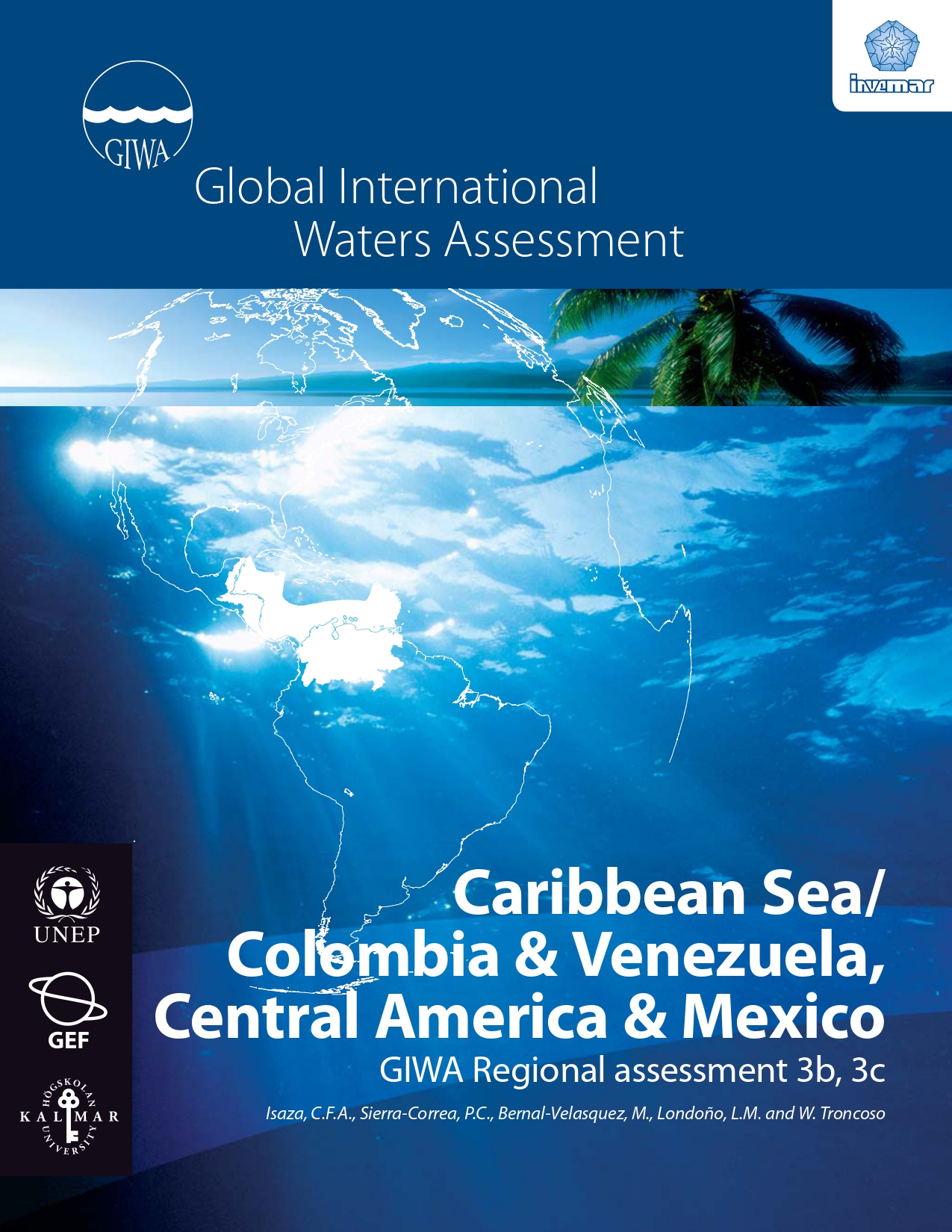
Global International Waters Assessment Regional assessment 3b, 3c Caribbean Sea/Colombia & Venezuela, Caribbean Sea/Central America & Mexico
This report presents the results of the GIWA assessment of the Colombia & Venezuela and Central America & Mexico sub-systems-located in the GIWA Region 3, The Caribbean Sea. The regional team identified habitat and community modification as the priority concern of both sub-systems. In the Colombia & Venezuela sub-system, coastal habitats are being degraded by a multitude of issues, particularly land-based sources of pollution. The transboundary ecosystems of the Central America & Mexico sub-systems have been severely degraded as a consequence of the agricultural and urban expansion, increased pollution loads and unsustainable forestry practices. The past and present pollution status and future prospects of these issues are discussed, and they are traced back to their root causes. Feasible policy options are proposed that target key components identified in the Causal Chain Analysis in order to minimize future impacts on the transboundary aquatic environment.
 5
5


 Report issue
Report issue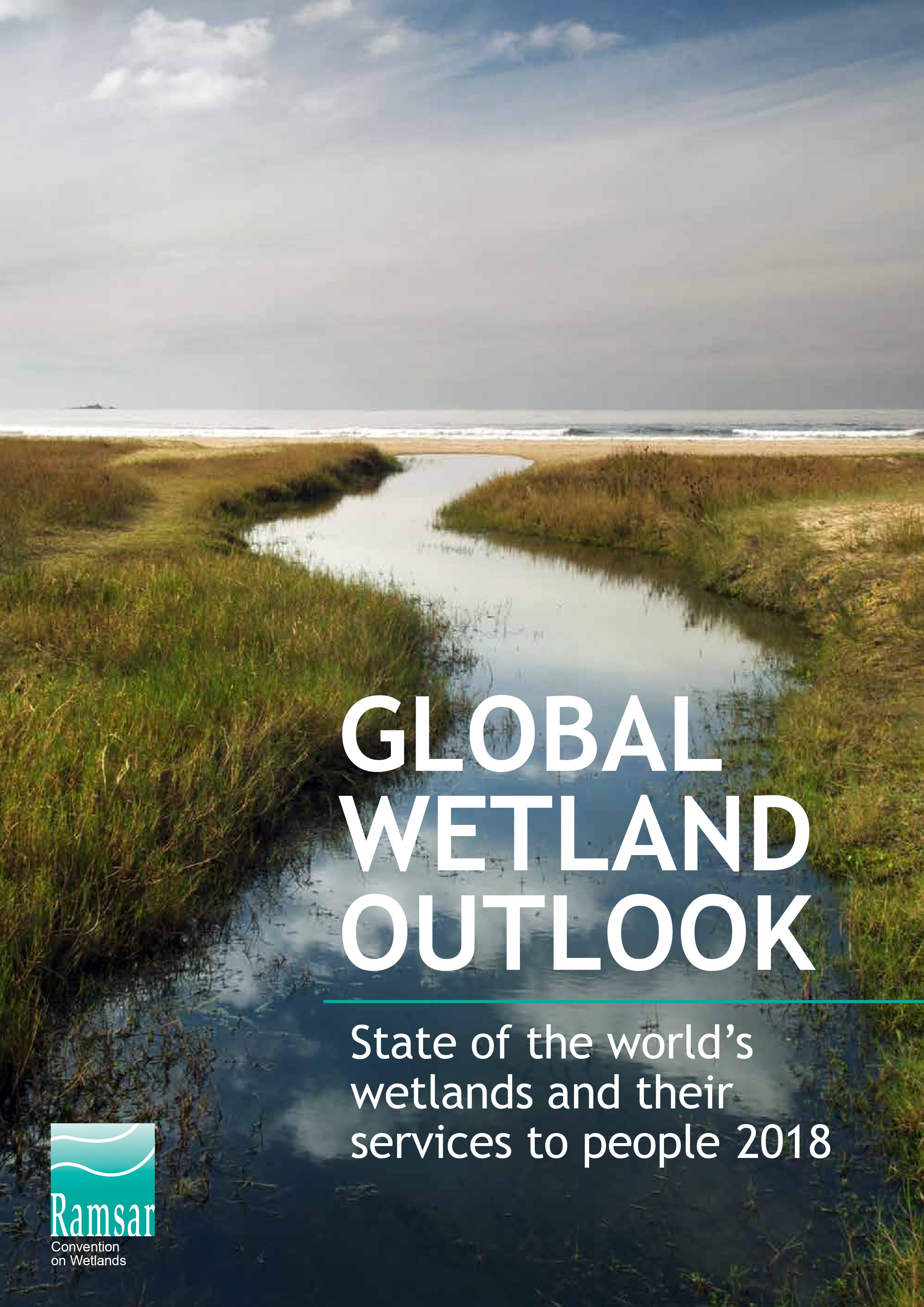
Global Wetland Outlook – State of the world´s wetlands and their services to people 2018
Wetlands, such as lakes, rivers, swamps, marshes, peatlands, mangroves and coral reefs provide essential ecosystem services and contributions to people’s livelihoods. Wetlands act as a source and purifier of water, they protect us from floods, droughts and other disasters, they provide food and livelihoods to millions of people, they support rich biodiversity, and they store more carbon than any other ecosystem. Yet, the value of wetlands remains largely unrecognized by policy and decision-makers. The result is that 35% of wetlands, where data is available, have been lost since 1970, at a rate three times greater than that of forests.
 7
7


 Report issue
Report issue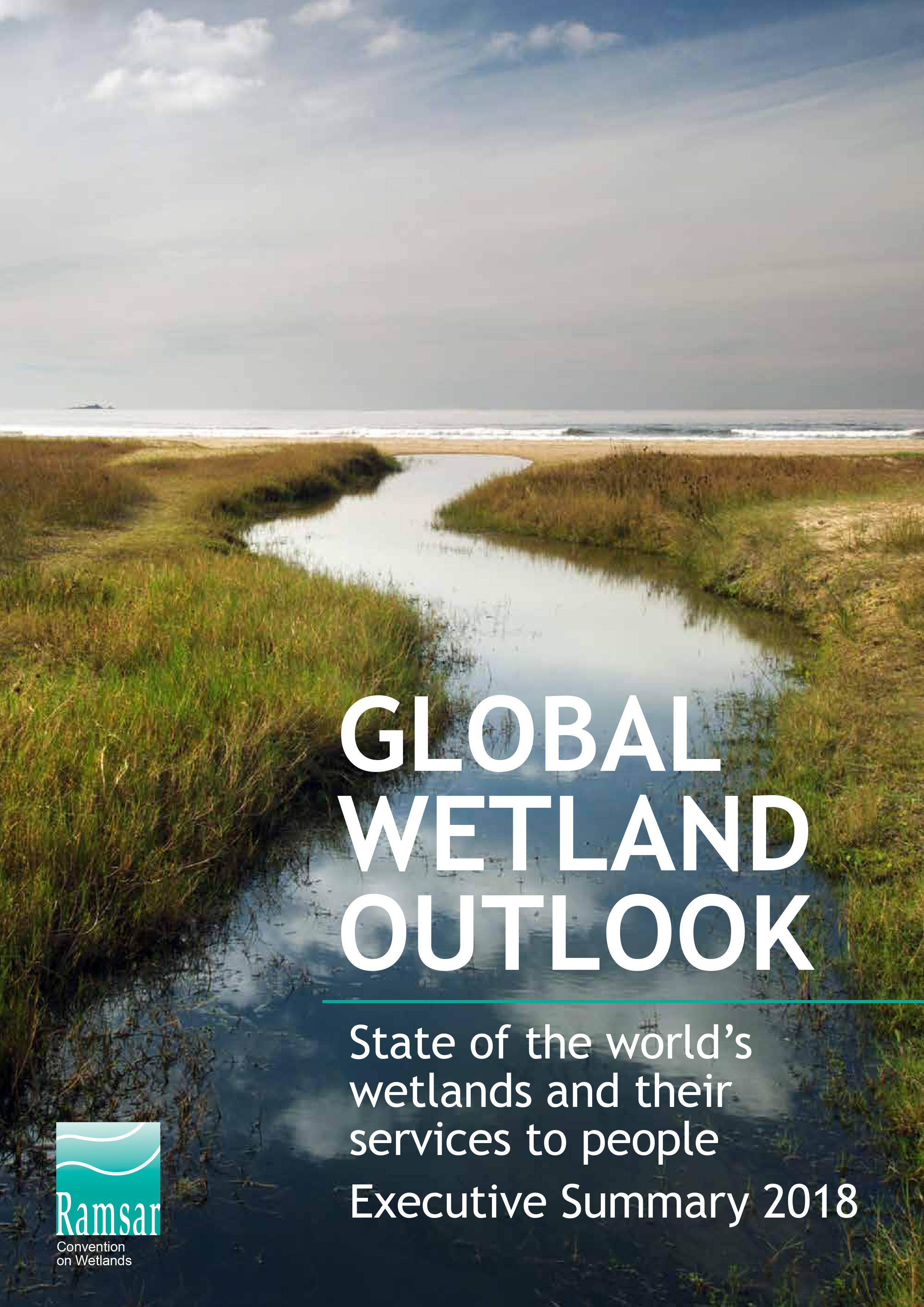
Global Wetland Outlook State of the world´s wetlands and their services to people – Executive Summary 2018
Conservation and wise use of wetlands are vital for human livelihoods. The wide range of ecosystem services wetlands provide means that they lie at the heart of sustainable development. Yet policy and decision-makers often underestimate the value of their benefits to nature and humankind.
 5
5


 Report issue
Report issue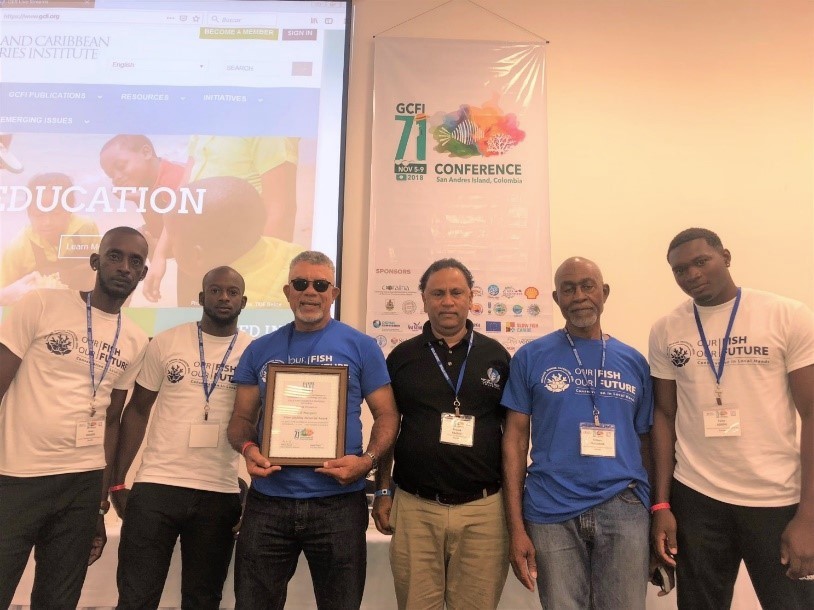
Gouyave Fishermen Cooperative Society Limited: Fisherfolk taking the lead in co-management of the Gouyave Marine Protected Area, Grenada 2019
This case study aims to enhance knowledge about innovations and best practices currently being utilised by civil society organisations (CSOs) and their partners in the Caribbean that can be applied to support conservation, restoration and sustainable use of coastal and marine resources in marine protected areas (MPAs) and marine managed areas (MMAs). It has been developed under the regional project ‘Powering Innovations in Civil Society and Enterprises for Sustainability in the Caribbean (PISCES) which is being funded by the European Union EuropeAid programme and is being implemented over a three-year period (2017 to 2020). PISCES is taking place in 10 countries: Antigua and Barbuda; The Bahamas; Dominica; Grenada; Haiti; Jamaica; Saint Kitts and Nevis; Saint Lucia; Saint Vincent and the Grenadines; and Trinidad and Tobago.
 4
4


 Report issue
Report issue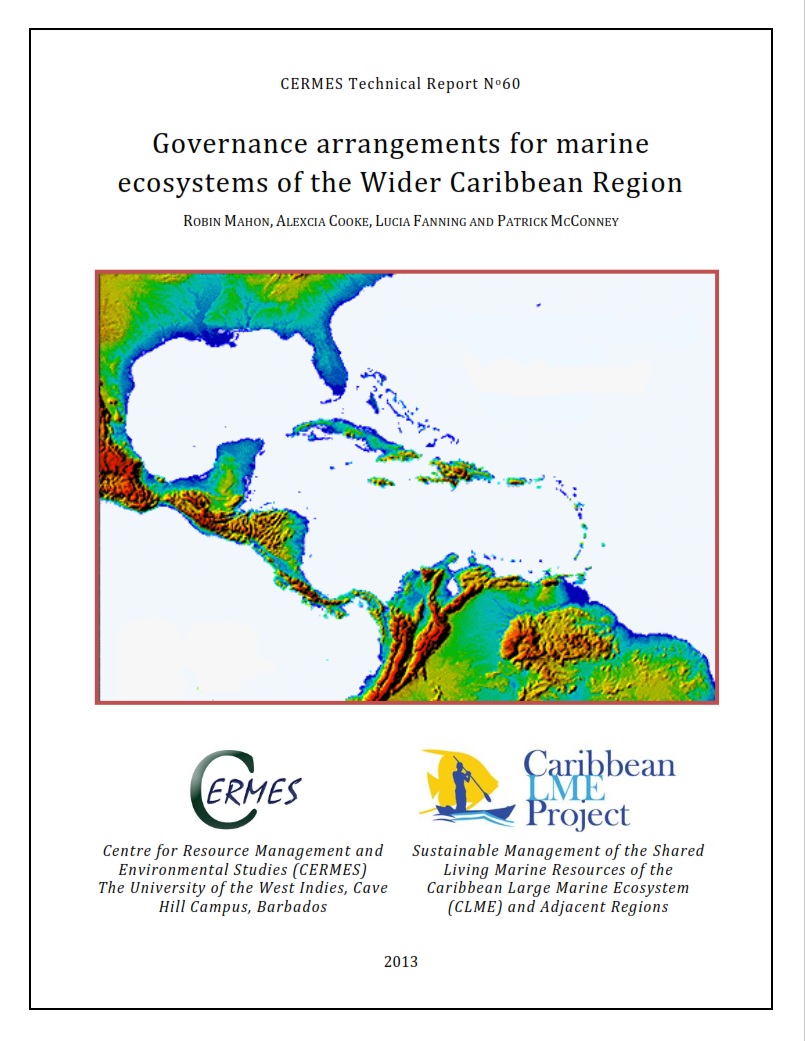
Governance arrangements for marine ecosystems of the Wider Caribbean Region
The Regional Governance Framework (RGF) proposed in this report has evolved over the duration of the CLME Project, through interaction with regional stakeholder organizations. Much of the conceptual basis for the framework was developed and accepted by the countries and regional organizational that stage. What is presented here takes the concepts to the next stage of an actual framework addressing actual issues and identifying organizations and the roles that they would play in the framework. What is presented here is based on assessment and consultation with key partner organizations and is viewed as a consensus to be proposed to the countries for adoption rather than a set of options among which the regional organizations and countries must decide.
 9
9


 Report issue
Report issue

